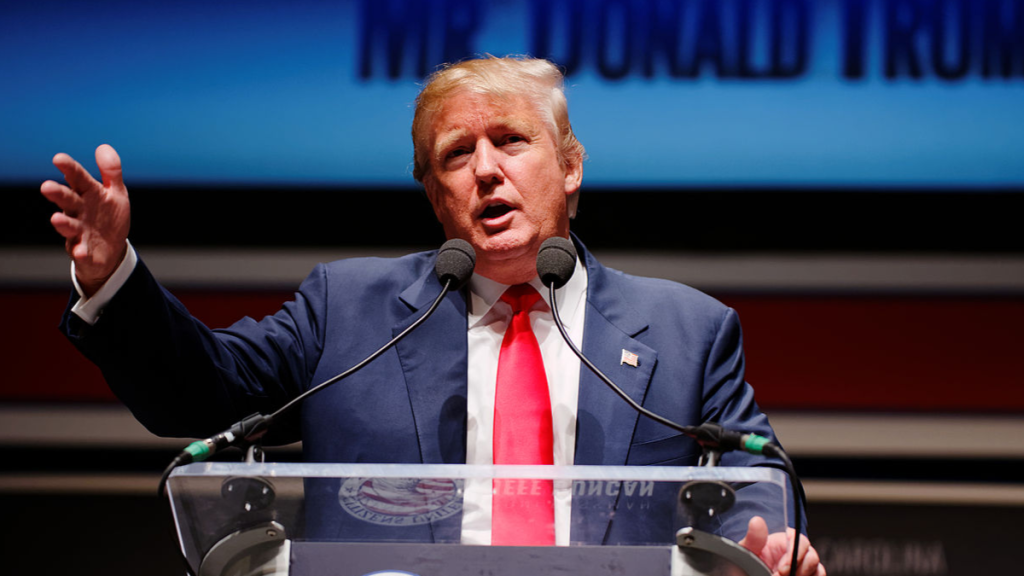OK, so let’s say the $h!t finally hits the fan.
Imagine that whomever you think would be the worst possible president has just been elected. Further, imagine that he has made clear, “Don’t think we’re not keeping score, brother,” or that anyone who didn’t cooperate with his plans would “pay a big price.”
Would you be comforted to know that, under the law, this president and his men had a right to know about your past political activity in opposition to his election? Or would that bother you just a little?
Suppose this person were intent on smothering political dissent. Do you think one of the first things he would do would be to make it harder to express political views? Might he, for example, prohibit the Environmental Defense Fund from distributing film footage that was critical of his presidency?
Protecting Ourselves from the Worst
Of course, these things aren’t likely to happen—I don’t think—but should we guard against them? In fact, we do guard against these types of things, in substantial part through our Constitution. In particular, freedom of association and freedom of speech are protected by the First Amendment.
Unfortunately, these protections are under ferocious attack these days, and the attack doesn’t necessarily come from the worst—or even poorly intentioned—people. Rather, as the great Supreme Court Justice Louis Brandeis stated:
Experience should teach us to be most on our guard to protect liberty when the government’s purposes are beneficent. … The greatest dangers to liberty lurk in insidious encroachment by men of zeal, well-meaning but without understanding.
The Dark Side of Campaign Finance Reform
Today, in the name of “campaign finance reform,” the government requires by law that your political contributions to candidates, parties, and causes be reported to the government, which keeps it in a database where it can be accessed by any government official for any reason. This is called “campaign finance disclosure.” Under the Federal Election Campaign Act, any donation over $200 or more to a political candidate, party, PAC or Super PAC must be reported to the government.
But the government still doesn’t track all your political activity. For example, if you join a group such as the National Rifle Association, or make a contribution to Planned Parenthood, the government doesn’t know about it.
At least not yet. In recent years, however, there has been a push to give the government that sort of information, and also to make it available to your potential employers, your professors, and any nosy neighbor who wants it. Those who want to know more about your private affairs and beliefs call such contributions “dark money.” They want to know about any contribution you make to groups that might influence elections.
The Movement to Suppress Political Speech
There are also many who want to suppress the reach of political speech. Unfortunately for them, the First Amendment prohibits the government from limiting political speech. It can’t limit what you say, and more importantly, it can’t limit what you hear and read. But the urge to stifle speech is strong. One way to do that is to limit what makes speech possible.
For example, suppose the government made it illegal to spend any money to operate a website, publish a newspaper, or produce a documentary movie. That would limit the dissemination of dissenting views pretty quickly, wouldn’t it?
When Supposition Becomes Reality
Actually, the government tried to do just that in the well-known but widely misunderstood case of Citizens United v. Federal Election Commission. In 2008, Citizens United, a nonprofit corporation, had produced, and wished to distribute, a movie that was critical of then-presidential candidate Hillary Clinton.
- The government argued that because corporate funds were used to produce and distribute the movie (how many movies have you seen with public distribution that didn’t use corporate funds somewhere in the production and distribution process?), it could prohibit that distribution.
- In fact, the government’s lawyers told the Supreme Court that the government could prohibit the publication of a 500-page book containing even one line of political advocacy, if it were—again, like almost every other book you’ve ever read in hard cover or electronically—produced or distributed using any corporate (or, for good measure, union) funds.
- The government also asserted that books circulated through services such as Kindle and Nook could be banned under current law—and the fact that the government hadn’t done so was just a matter of administrative grace.
Citizens United could just as easily have been Environmental Defense Fund v. FEC, AFL-CIO v. FEC, or NAACP v. FEC. The remarkable thing is not that Citizens United won—it is that four Supreme Court justices would have ruled the other way—limiting the distribution of a documentary movie about a political candidate in an election year. After all, MSNBC, the New York Times, and Gawker Media, Pinterest, and YouTube are all run by corporations as well. Even Bernie Sanders’s campaign committee is a corporation.
If you can prohibit corporate speech, or limit the ability of people to spend money to deliver a public message, you’ve pretty much done away with free speech. Perhaps our First Amendment rights—not just to speak, but to hear, to decide what we want to hear, to think for ourselves—are not secure as we’d like to think.
A final thought: Prior to the mid-1970s, there was no Federal Election Commission, and no limit on the amount a citizen could contribute to a federal campaign. Yet somehow, Americans, through our government, defeated the Nazis, passed the Civil Rights Act and the Voting Rights Act, survived the depression, and put a man on the moon.
Maybe this “let’s put an end to money in politics” thing isn’t such a great idea after all.



